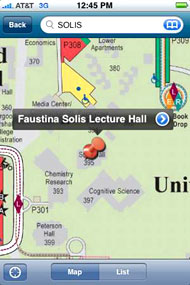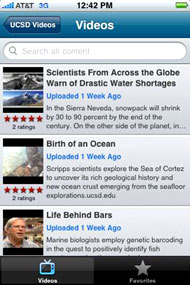- "Three Approaches to Green Computing on Campus"1 provides a general view of sustainability efforts on various campuses around the US. The three approaches are: Reforming power management strategies to reduce power usage when computers are in use or idle; Migrating E-Mail and other data onto externally hosted large scale(and significantly more energy efficient) databases(for example moving campus email to Gmail); and using technology to reduce physical transport requirements. The approaches go from very straightforward to a little more abstract, but there are obvious reasons that IT should play a large role in increasing sustainability on campus. Which segways into the next article:
- "Bottom Up and Top Down: Making IT a Key Part of the Campus Sustainability Effort"2 Similar to the previous article, the article makes the case that IT is a place where major gains in sustainability can be achieved with minimal effort. Therefore, IT should play a key role in campus sustainability efforts. It also introduces the concept of server consolidation which in addition to the administrative benefits, the energy usage reduction is significant. The Article also includes a discussion and example of E-Recycling initiatives.
- "Green IT Best Practices at the University of Michigan"3 This is a case of campus wide IT services embracing sustainability, it includes many of the ideas mentioned in the previous articles, with more implementation specifics.
-Robin
1. Thompson, John T. "Three Approaches to Green Computing on Campus." Educase Quarterley. Vol. 23 no. 3.
2.Dennis Cromwell, Kristin Hanks and Sarah Engel. "Bottom Up and Top Down: Making IT a Key Part of the Campus Sustainability Effort." Educase Quarterley. Vol. 23 no. 3.
3. Stuenkel, MaryBeth."Green IT Best PRactices at the University of Michigan." Educase Quarterley. Vol. 23 no. 3.






